Home>Storage Ideas>Bathroom Storage>Many People Are Using Cleaning Products Dangerously Due To COVID-19
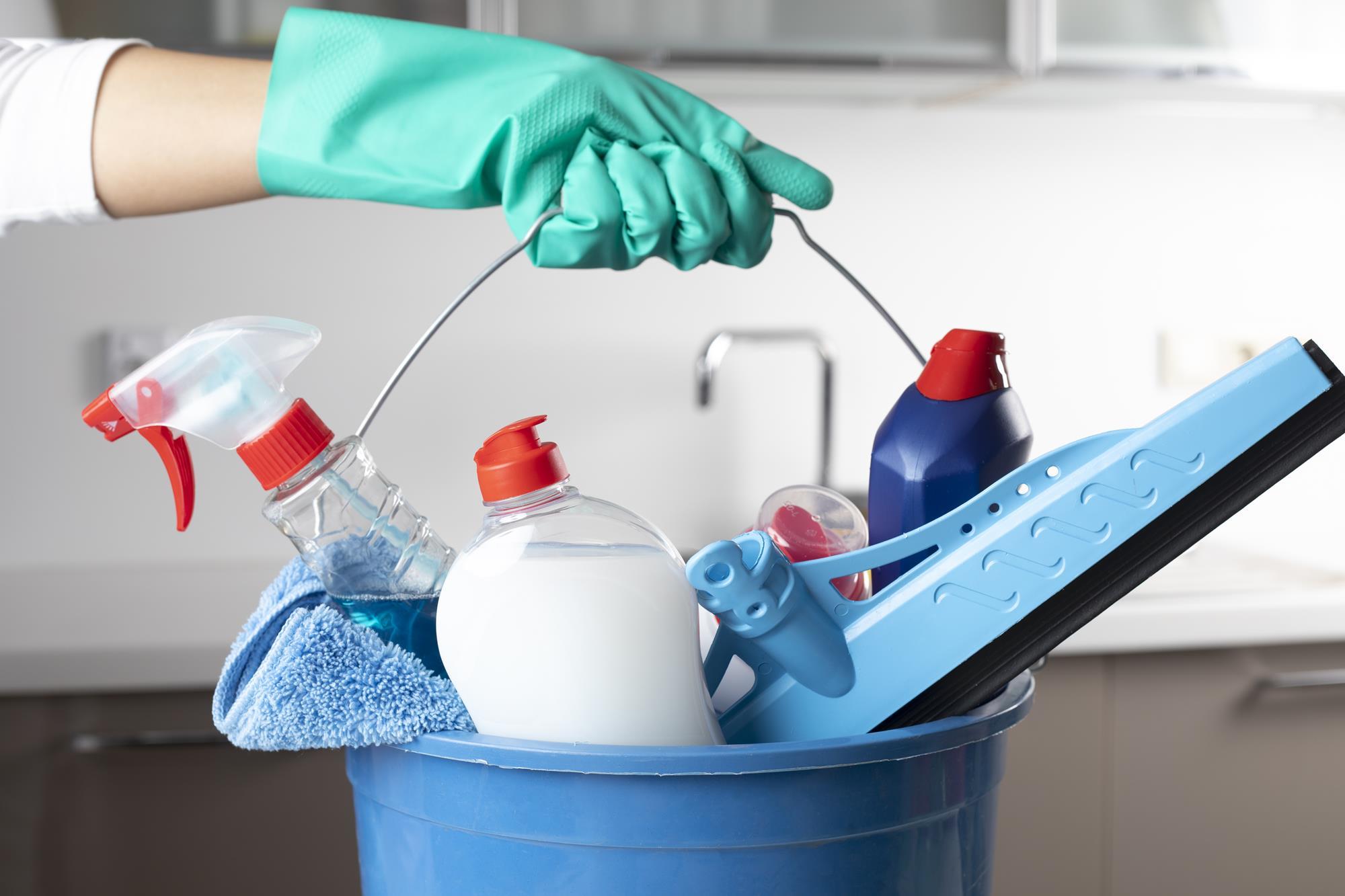

Bathroom Storage
Many People Are Using Cleaning Products Dangerously Due To COVID-19
Modified: January 23, 2024
Discover safe and effective bathroom storage solutions to prevent the dangerous misuse of cleaning products during the COVID-19 pandemic.
(Many of the links in this article redirect to a specific reviewed product. Your purchase of these products through affiliate links helps to generate commission for Storables.com, at no extra cost. Learn more)
Introduction
In the midst of the COVID-19 pandemic, maintaining cleanliness and hygiene has become a top priority for people all over the world. As a result, there has been a surge in the use of cleaning products to ensure a clean and germ-free environment. While proper cleaning practices are crucial for protecting ourselves and our loved ones, it is important to be aware of the potential dangers of misusing these products.
Cleaning products contain a range of chemicals that can effectively kill germs and bacteria. However, mishandling or using these products inappropriately can lead to adverse effects on our health and safety. From inhalation risks to skin irritation and burns, it is important to understand the potential dangers associated with the misuse of cleaning products.
In this article, we will explore the common cleaning products used in households, as well as the dangers of misusing them. We will discuss the risks of inhalation, skin irritation and burns, eye damage, and ingestion hazards. Additionally, we will provide guidelines on safe handling, storage, and usage practices to ensure the well-being of you and your family.
Key Takeaways:
- Safely handle and store cleaning products to protect against inhalation, skin irritation, eye damage, and ingestion hazards. Follow usage guidelines and prioritize safety to maintain a clean and healthy environment.
- Prioritize proper ventilation, protective gear, and safe usage practices when cleaning to minimize health risks. Keep cleaning products out of reach of children and pets, and follow disposal guidelines for a safe home environment.
Read more: How To Sanitize Pillows After COVID-19
Common Cleaning Products
Cleaning products come in various forms, each designed for specific cleaning purposes. Understanding the different types of cleaning products can help you make informed decisions about which ones to use and how to use them safely. Here are some common cleaning products found in households:
- All-Purpose Cleaners: These versatile cleaners are formulated to clean a variety of surfaces, including countertops, floors, and appliances. They come in spray, liquid, or powder form and are designed to remove dirt, grease, and stains.
- Disinfectants: Disinfectants are specifically formulated to kill germs, bacteria, and viruses. They are commonly used on high-touch surfaces like doorknobs, light switches, and bathroom fixtures.
- Glass Cleaners: Glass cleaners are formulated to remove dirt, fingerprints, and smudges from glass surfaces, including windows, mirrors, and glass tabletops.
- Bathroom Cleaners: Bathroom cleaners are designed to effectively remove soap scum, hard water stains, and mildew. They are commonly used on surfaces such as sinks, showers, and toilets.
- Floor Cleaners: Floor cleaners are formulated to clean different types of flooring, including wood, tile, and laminate. They help remove dirt, grime, and stains while leaving a fresh scent.
- Oven Cleaners: Oven cleaners are specially formulated to remove grease, baked-on food, and stains from ovens and stovetops. They can be harsh and contain strong chemicals, requiring careful handling.
It’s important to note that these products can vary in their chemical compositions and strengths. Some cleaning products may contain harsh chemicals, while others are formulated to be more environmentally friendly. Always read the product labels and instructions carefully to understand their recommended uses, precautions, and any specific safety instructions.
Dangers of Misuse
While cleaning products are essential for maintaining cleanliness, it is crucial to use them safely and according to their intended purpose. Misuse of cleaning products can lead to various health and safety risks. Here are some of the dangers associated with their misuse:
- Inhalation Risks: Many cleaning products contain volatile chemicals that can release toxic fumes when used in poorly ventilated areas or in excessive quantities. Breathing in these fumes can irritate the respiratory system, causing symptoms such as coughing, wheezing, and shortness of breath. In severe cases, it can lead to chemical pneumonia or chemical burns in the lungs.
- Skin Irritation and Burns: Certain cleaning products can be harsh on the skin and cause irritation, redness, and dryness. Prolonged or repeated contact with these products can lead to more severe skin conditions, such as contact dermatitis. Additionally, some cleaning products contain corrosive substances that can cause chemical burns if they come into direct contact with the skin.
- Eye Damage: Cleaning products can cause serious harm if they come into contact with the eyes. Splashing or spraying cleaning solutions can cause irritation, redness, and even chemical burns to the delicate tissues of the eyes. It is important to take precautions to protect your eyes when using cleaning products.
- Ingestion Hazards: Accidental ingestion of cleaning products can have severe consequences. Swallowing certain cleaning products can lead to poisoning, chemical burns, and even internal organ damage. It is essential to keep cleaning products out of the reach of children and to store them properly in a secure location.
It’s important to remember that these risks can vary depending on the specific cleaning product and its chemical ingredients. Always refer to the product labels for any specific hazards, precautions, or instructions provided by the manufacturer.
Inhalation Risks
Inhalation of cleaning product fumes can pose significant health risks, especially when products containing volatile organic compounds (VOCs) or harsh chemicals are used in confined spaces with inadequate ventilation. The chemical fumes emitted by cleaning products can irritate the respiratory system, leading to various uncomfortable symptoms and potential long-term health effects.
The respiratory symptoms caused by inhaling cleaning product fumes can range from mild to severe. Common symptoms include coughing, wheezing, shortness of breath, chest tightness, and throat irritation. These symptoms may appear immediately after exposure or develop gradually over time, depending on the duration and intensity of the exposure.
Long-term exposure to cleaning product fumes can have more serious consequences. Studies have shown that prolonged inhalation of certain chemicals found in cleaning products, such as bleach or ammonia, can increase the risk of respiratory conditions like asthma and chronic obstructive pulmonary disease (COPD). Additionally, the constant irritation to the respiratory system can weaken the lungs’ ability to defend against infections and other respiratory illnesses.
To minimize the risk of inhalation hazards, it is important to follow these precautions when using cleaning products:
- Ensure proper ventilation: Open windows and doors to allow fresh air to circulate in the room while cleaning. Use fans or ventilation systems to improve air flow and remove fumes.
- Use protective equipment: Wear a mask or respirator that is appropriate for the chemicals being used. N95 masks are recommended for filtering out small particles and fumes.
- Read and follow instructions: Always read the product labels and follow the manufacturer’s instructions for safe usage. Pay attention to any specific warnings or precautions related to inhalation hazards.
- Avoid mixing chemicals: Never mix different cleaning products, as this can result in the release of toxic gases. Chemical reactions between certain cleaning agents, such as bleach and ammonia, can produce dangerous fumes.
- Store properly: After use, securely close the cleaning product containers to prevent the release of fumes. Store them in a cool, dry place away from food, children, and pets.
By taking these precautions and being mindful of the potential inhalation risks, you can ensure the safety of your respiratory system while effectively cleaning your surroundings.
Skin Irritation and Burns
Cleaning products can contain chemicals that are irritating to the skin, leading to various skin problems such as irritation, redness, dryness, and even chemical burns. The severity of the skin reaction can vary depending on the individual’s sensitivity and the strength of the cleaning product. It is important to take precautions to protect your skin while using cleaning products.
Direct contact with cleaning products can cause immediate skin irritation. Prolonged or repeated exposure to certain chemicals can lead to more serious skin conditions, such as contact dermatitis. Contact dermatitis is a common skin inflammation that can cause symptoms like itching, redness, rash, and blistering.
To minimize the risk of skin irritation and burns, it is important to follow these guidelines when using cleaning products:
- Wear protective gloves: Use gloves made from materials such as nitrile, rubber, or vinyl to protect your hands from direct contact with cleaning solutions. Ensure that the gloves fit properly and are in good condition.
- Use appropriate clothing: Wear long sleeves and long pants to provide an extra layer of protection for your skin. Avoid wearing clothing that is too loose, as it may increase the risk of accidental spills or splashes.
- Avoid prolonged exposure: Minimize the amount of time your skin is in contact with cleaning products. If possible, rinse off the cleaning solution from your skin as soon as you are done using it.
- Rinse thoroughly: After using cleaning products, make sure to rinse your skin thoroughly with water to remove any residue. Pat your skin dry gently with a clean towel.
- Moisturize your skin: Use a gentle moisturizer after cleaning to keep your skin hydrated and to restore any moisture that may have been lost during the cleaning process.
- Be cautious with abrasive cleaners: Abrasive cleaners, such as ones used for scrubbing tough stains or removing rust, can be more harsh on the skin. Avoid direct contact with these products and use them sparingly.
If you notice any skin irritation or if you develop a rash or blister after using a cleaning product, stop using it immediately and wash the affected area thoroughly. If the symptoms persist or worsen, seek medical advice.
Remember, prevention is key when it comes to protecting your skin from the potential hazards of cleaning products. By taking the necessary precautions and using proper protective measures, you can minimize the risk of skin irritation and burns while maintaining a clean and safe environment.
When using cleaning products, always follow the instructions on the label. Avoid mixing different products together, as this can create harmful fumes. Make sure to ventilate the area while cleaning and wear gloves to protect your skin.
Eye Damage
Cleaning products can pose a significant risk to your eyes if they come into direct contact with them. The chemicals present in many cleaning solutions can cause immediate irritation and injury to the delicate tissues of the eyes. It is essential to take precautions to protect your eyes when using cleaning products to prevent eye damage.
Splashing, spraying, or accidentally rubbing your eyes with contaminated hands can lead to eye irritation, redness, tearing, and a burning sensation. In some cases, the chemicals in cleaning products can cause more serious injuries, such as chemical burns or corneal abrasions.
To safeguard your eyes from potential damage while using cleaning products, follow these guidelines:
- Wear protective eyewear: Use safety goggles or glasses with side shields to protect your eyes from splashes, sprays, and accidental contact with cleaning solutions.
- Keep lids tightly closed: Ensure that cleaning product containers are securely closed when not in use to minimize the risk of accidental spills or splashes.
- Avoid touching your eyes: Refrain from touching or rubbing your eyes while working with cleaning products. If you need to touch your eyes, make sure to wash your hands thoroughly with soap and water beforehand.
- Flush with water: If a cleaning product comes into contact with your eyes, immediately flush your eyes with water for at least 15 minutes. Use lukewarm water and hold your eyes open with your fingers to ensure effective rinsing. Seek medical attention if irritation persists or if you experience severe pain or vision changes.
- Seek medical assistance: If you experience eye discomfort, inflammation, or any other adverse symptoms after using a cleaning product, seek medical advice as soon as possible. Delaying treatment could result in further complications.
Remember, prevention is crucial when it comes to protecting your eyes from potential injuries caused by cleaning products. By wearing appropriate eye protection and practicing caution, you can minimize the risk of eye damage and maintain the well-being of your eyes while keeping your surroundings clean and tidy.
Ingestion Hazards
Accidental ingestion of cleaning products can have serious consequences for your health. Cleaning products are formulated with chemical compounds that are not meant to be ingested, and swallowing them can lead to poisoning, chemical burns, and internal organ damage. It is essential to take precautions to prevent accidental ingestion and to handle cleaning products with care.
Children are especially vulnerable to the risks of ingestion, as they may mistake cleaning products for food or beverages due to attractive packaging or enticing smells. To minimize the risk of ingestion hazards, follow these guidelines:
- Keep cleaning products out of reach: Store cleaning products in a locked cabinet or in a high place out of the reach of children and pets. Use childproof locks if necessary to prevent access to potentially harmful substances.
- Avoid decanting: Do not transfer cleaning products into food or beverage containers, as this can lead to confusion and accidental ingestion.
- Never leave cleaning products unattended: Do not leave cleaning products open and unattended, especially around curious children or pets.
- Read warning labels: Pay close attention to warning labels on cleaning product containers. They often contain important information regarding toxicity, ingestion hazards, and first aid instructions.
- Follow proper disposal guidelines: Dispose of empty or unused cleaning product containers properly, following local regulations. Do not pour them down the drain or throw them in the regular trash unless instructed to do so.
- Seek immediate medical attention: In case of accidental ingestion, do not induce vomiting unless instructed by a medical professional. Instead, call your local poison control center or seek immediate medical attention.
It’s important to note that some cleaning products may have a child-resistant cap, but this does not guarantee complete safety. Vigilance and proper storage are key to preventing accidental ingestion.
By implementing these precautions and ensuring the safe handling and storage of cleaning products, you can minimize the risk of ingestion hazards in your home. Remaining cautious and proactive is essential for the well-being of you and your family.
Handling and Storage Precautions
Proper handling and storage of cleaning products are crucial to ensure the safety of your household and minimize the risk of accidents or exposure to hazardous substances. By following these handling and storage precautions, you can protect yourself, your family, and the environment:
- Read and Follow Instructions: Before using any cleaning product, carefully read the label and follow the manufacturer’s instructions regarding usage, dilution ratios, and safety precautions.
- Wear Protective Gear: When handling cleaning products, especially those that contain harsh chemicals, always wear appropriate protective gear, such as gloves, goggles, and masks, to protect yourself from skin and eye irritation or harmful fumes.
- Avoid Mixing Products: Never mix different cleaning products together, as this can create dangerous chemical reactions and release toxic gases. Follow the instructions on each product and use them separately.
- Store in a Safe Location: Store cleaning products in a dedicated, well-ventilated storage area that is inaccessible to children and pets. Use locked cabinets or shelves that are out of reach and ensure that products are securely capped or sealed. Store them away from food, beverages, and heat sources.
- Organize and Label: Keep cleaning products properly organized and labeled to prevent confusion and accidental use. Clearly mark any containers that have been repurposed for cleaning products to avoid mistaken identity.
- Dispose of Properly: Dispose of empty or expired cleaning product containers as per local regulations. Follow disposal instructions on the label or contact your local waste management facility to determine the proper disposal methods.
- Keep Emergency Numbers Handy: Keep a list of emergency numbers, such as poison control and medical facilities, readily available near your phone or in a visible location. In case of accidental exposure, quick access to these numbers can be critical.
Remember, proper handling and storage of cleaning products not only safeguard your family’s well-being but also protect the environment. By following these precautions, you can ensure a safe and clean home without compromising anyone’s health or safety.
Safe Usage Practices
Practicing safe usage of cleaning products is essential for maintaining a clean and healthy environment while minimizing the risk of accidents or health hazards. By following these safe usage practices, you can protect yourself, your family, and your home:
- Follow Instructions: Always read and follow the manufacturer’s instructions for each cleaning product. Pay attention to recommended usage, dilution ratios, and safety precautions.
- Use in Well-Ventilated Areas: Ensure good ventilation by opening windows or using fans when using cleaning products. This helps to dissipate any fumes or vapors and reduces the risk of inhalation hazards.
- Spot Test: Before using a new cleaning product on a surface, perform a small spot test in an inconspicuous area to check for any adverse reactions, discoloration, or damage.
- Avoid Excessive Use: Use cleaning products judiciously and avoid excessive application. More does not necessarily mean better, and overuse can result in unnecessary exposure to chemicals.
- Keep Water and Fire Safety in Mind: Certain cleaning products are flammable or react with water. Be cautious when using them near flames, electrical appliances, or when spraying near water sources.
- Store Food and Utensils Safely: When using cleaning products in the kitchen, ensure all food items and utensils are stored away from the cleaning area to avoid cross-contamination or accidental ingestion.
- Secure Child and Pet Safety: When cleaning, ensure that children and pets are in a safe and supervised area away from potentially hazardous substances. Restrict their access to the cleaning area to prevent accidental exposure.
- Clean Up Spills Promptly: If a spill or accident occurs during cleaning, clean it up immediately using appropriate methods and protective gear to prevent further hazards or cross-contamination.
- Wash Hands Thoroughly: After using cleaning products, remember to wash your hands thoroughly with soap and water to remove any residue and minimize the risk of accidental ingestion or transfer of chemicals to other surfaces.
- Properly Rinse Surfaces: When using cleaning products on surfaces that come into contact with food or skin, make sure to rinse them thoroughly with water to remove any residue and potential chemical exposure.
By adhering to these safe usage practices, you can ensure effective cleaning while prioritizing the health and safety of yourself, your family, and your surroundings.
Read more: How Many People Are In The Garden
Conclusion
Maintaining a clean and organized space is important for our health and well-being, especially in the midst of the COVID-19 pandemic. However, it is equally crucial to understand the potential dangers associated with the misuse of cleaning products. From inhalation risks to skin irritation, eye damage, and ingestion hazards, mishandling these products can have serious consequences for our health and safety.
To protect ourselves and our loved ones, it is essential to follow safe handling, storage, and usage practices. Make sure to read and follow the instructions provided by the manufacturer for each cleaning product, including any recommended precautions. Wear appropriate protective gear, such as gloves and goggles, when using cleaning products, and ensure that the area is well-ventilated.
Proper storage of cleaning products in secure locations, away from the reach of children and pets, is crucial to minimize the risk of accidental ingestion or exposure. Additionally, dispose of empty or expired cleaning product containers according to local regulations.
Remember to practice caution when using cleaning products in the kitchen, especially when it comes to food preparation areas and utensils. Thoroughly rinse surfaces after cleaning to remove any residue and potential chemical exposure.
By following these guidelines and prioritizing safety, we can maintain a clean and hygienic environment while minimizing the risks associated with cleaning product misuse. Let’s keep our households safe and healthy by using cleaning products responsibly and prioritizing the well-being of ourselves and our loved ones.
Frequently Asked Questions about Many People Are Using Cleaning Products Dangerously Due To COVID-19
Was this page helpful?
At Storables.com, we guarantee accurate and reliable information. Our content, validated by Expert Board Contributors, is crafted following stringent Editorial Policies. We're committed to providing you with well-researched, expert-backed insights for all your informational needs.
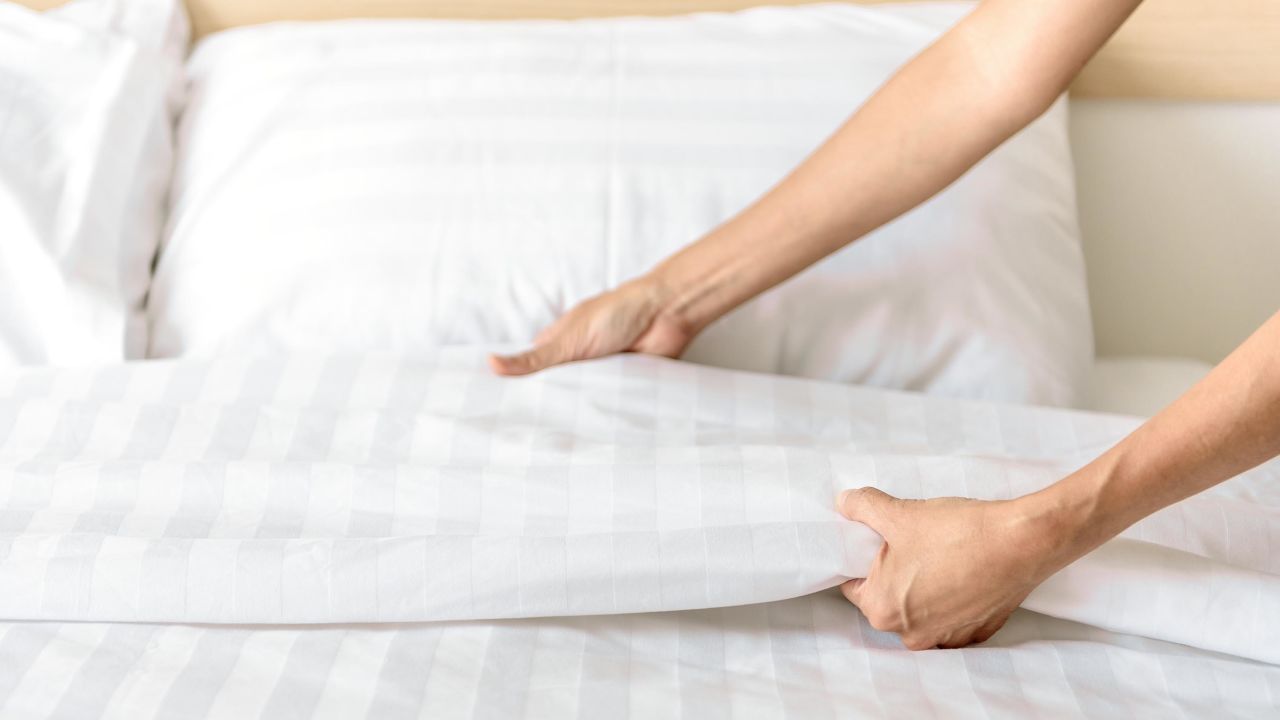



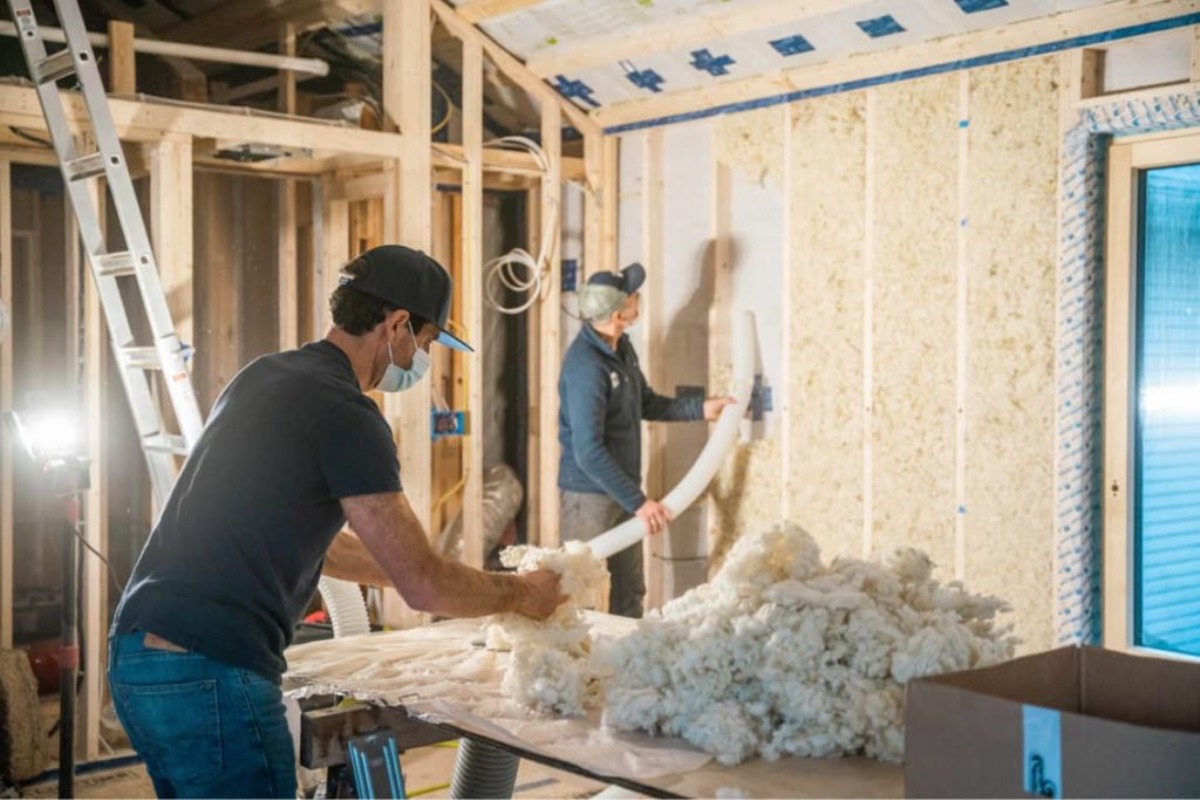

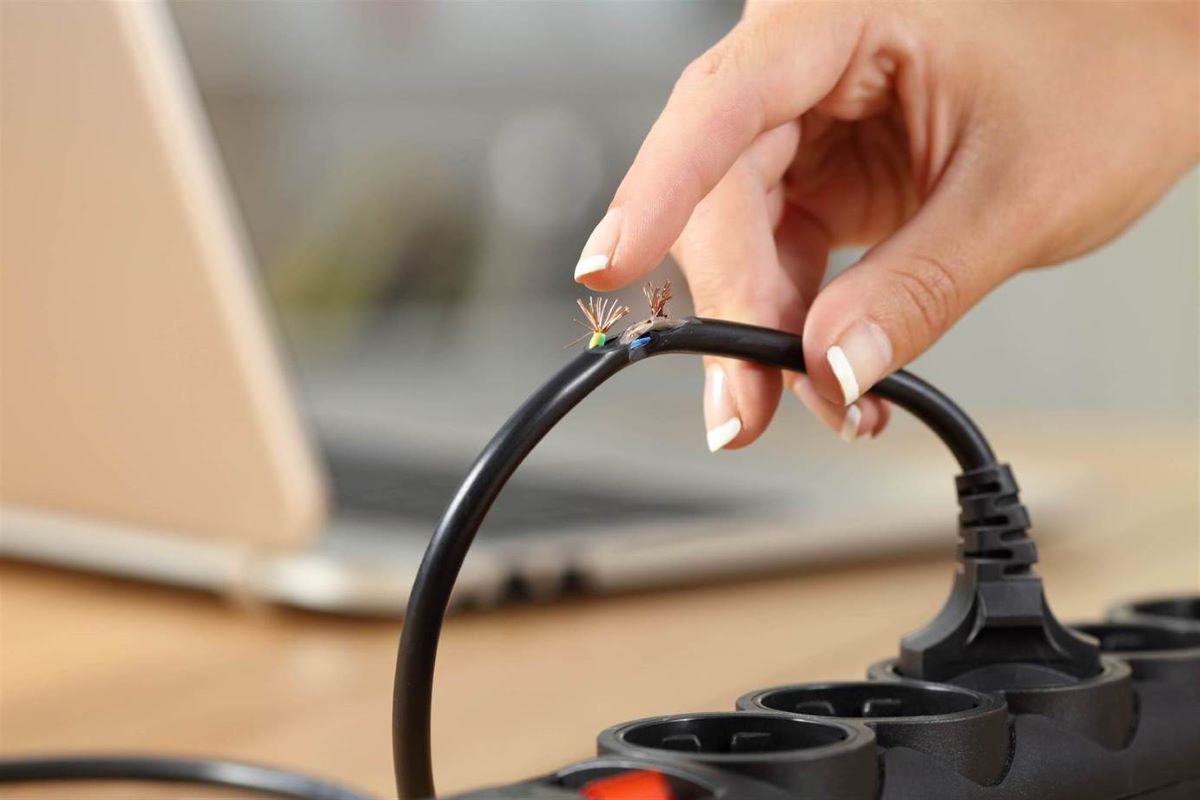
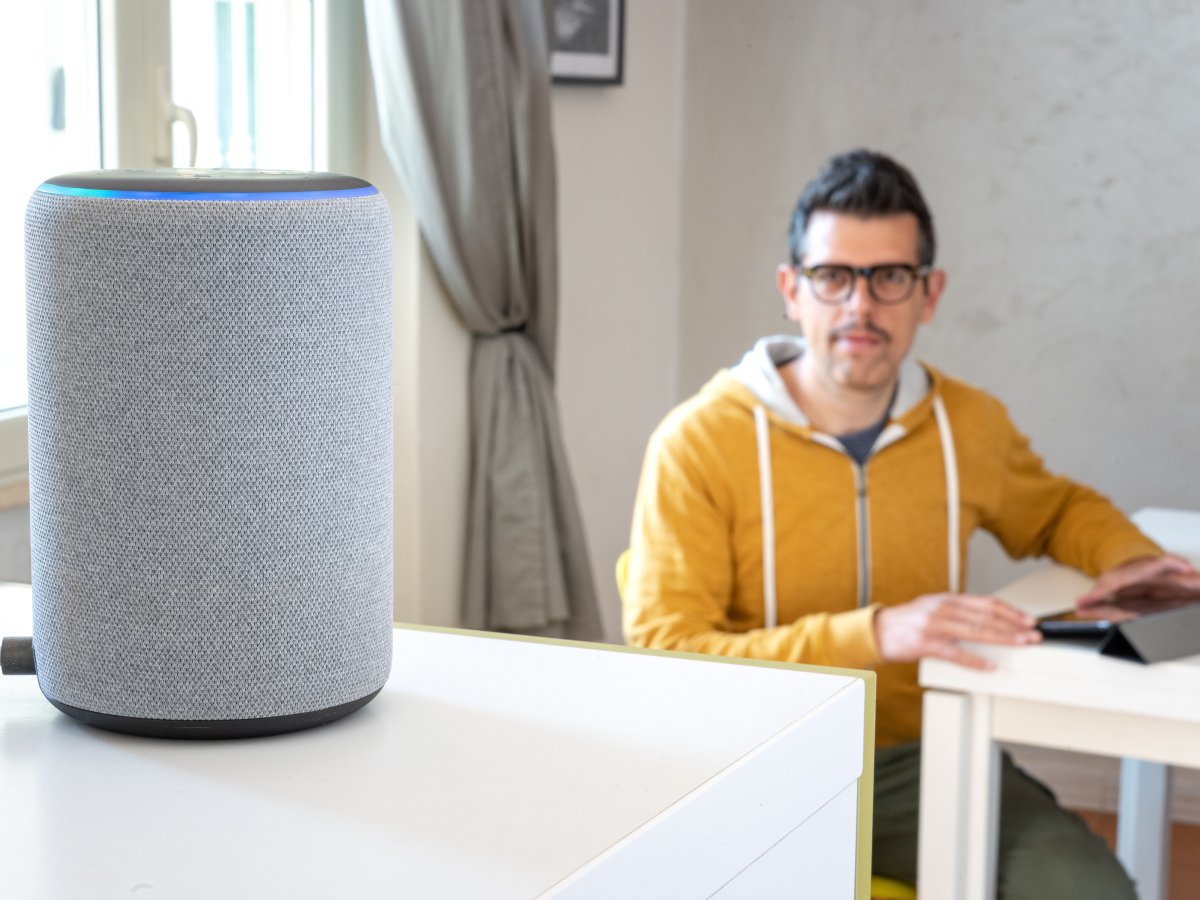

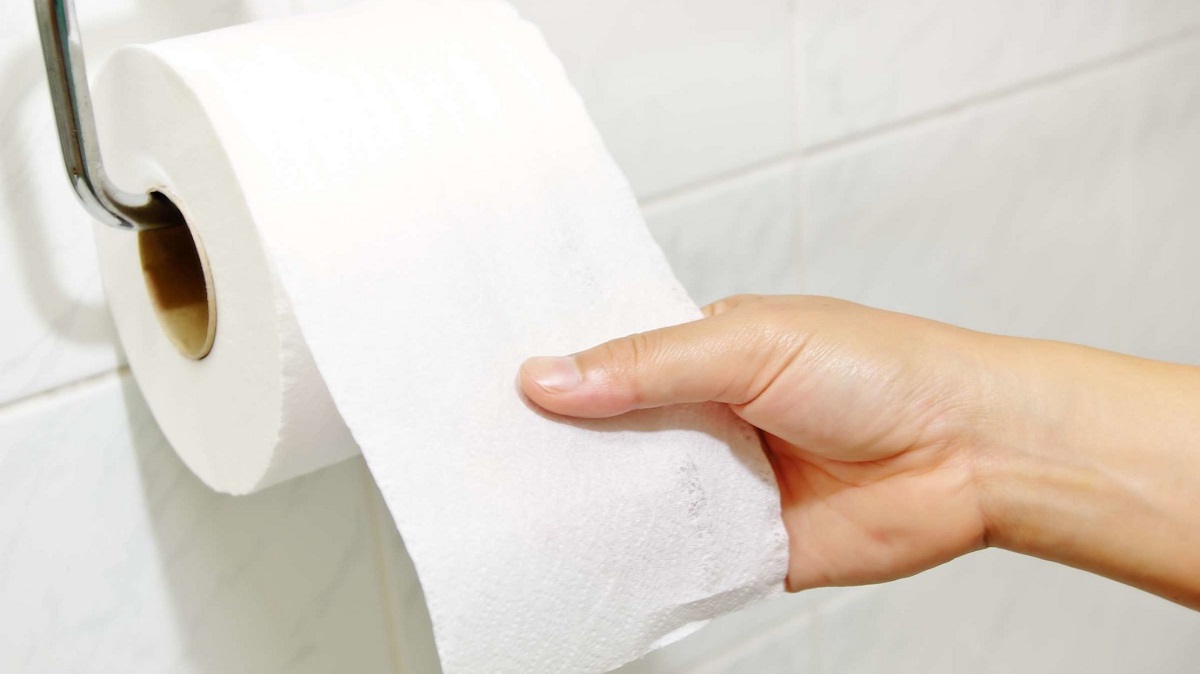
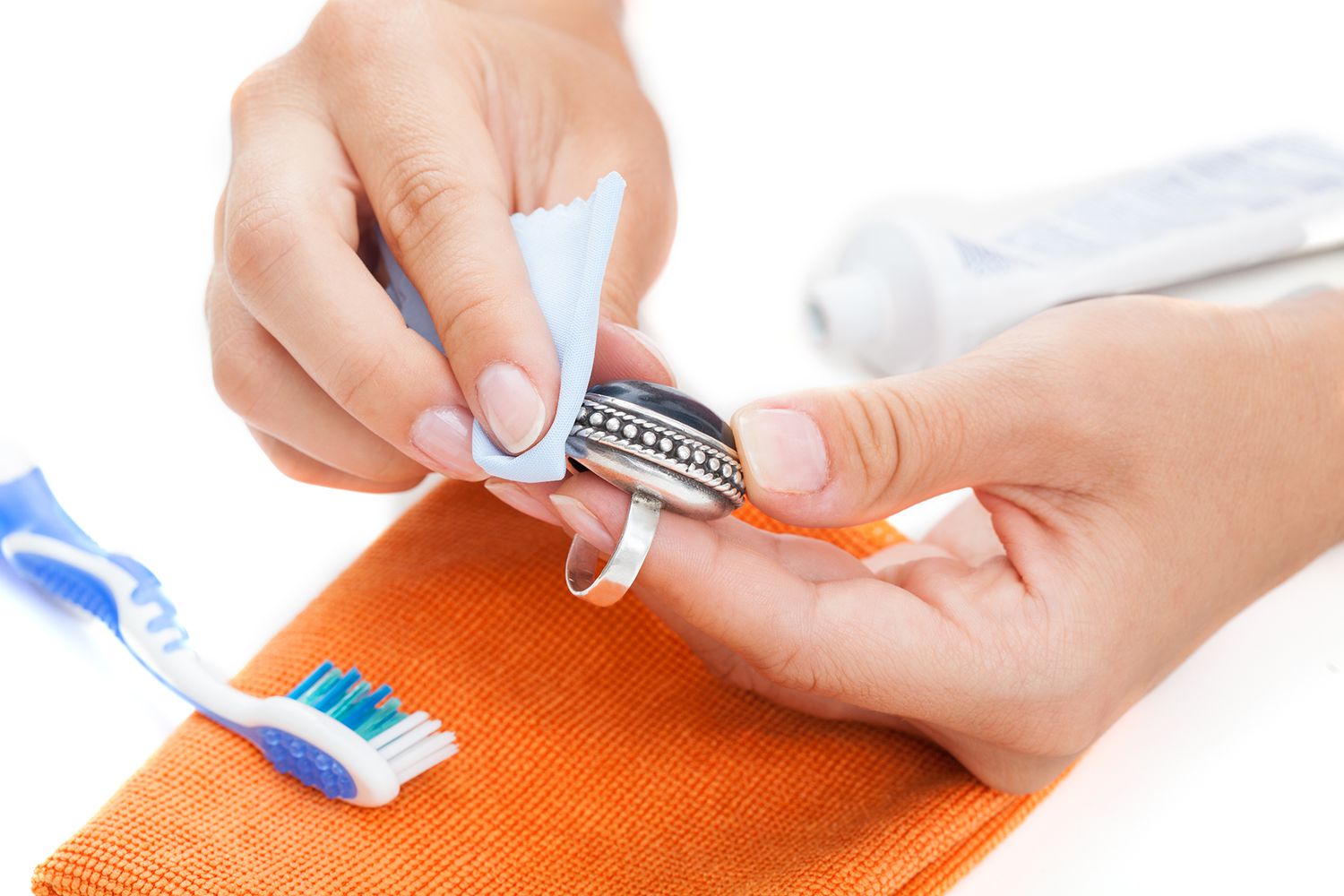
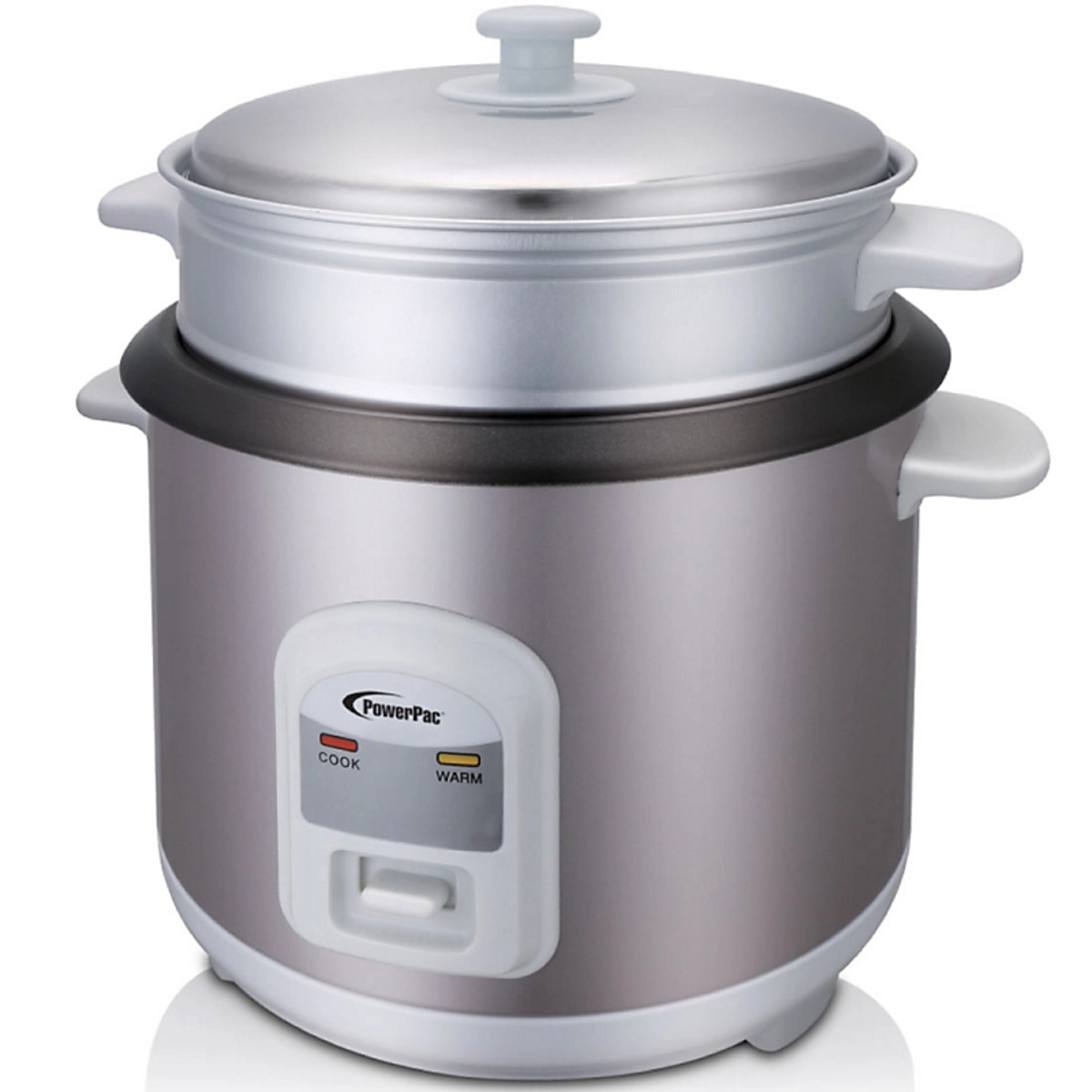
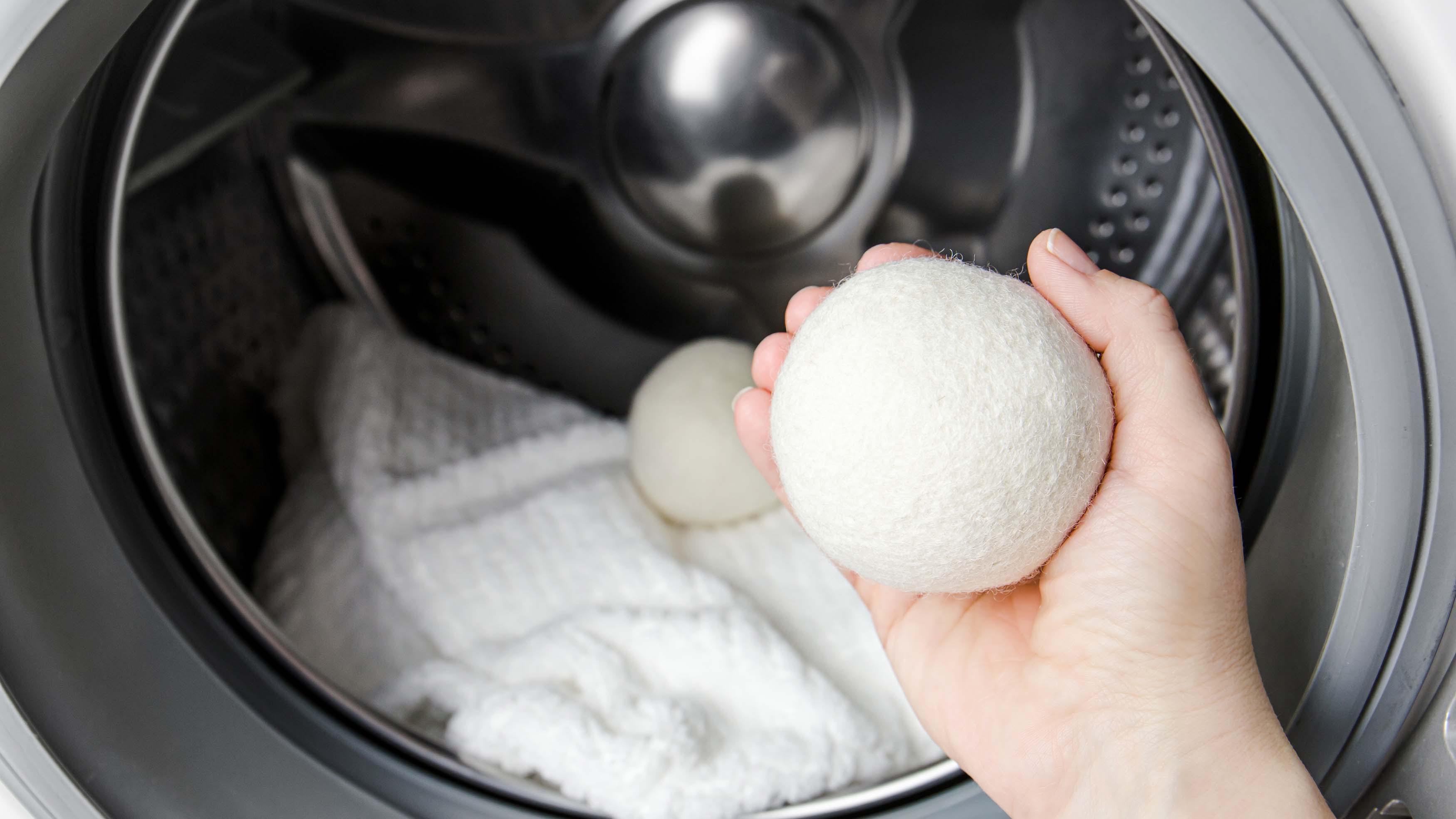

0 thoughts on “Many People Are Using Cleaning Products Dangerously Due To COVID-19”